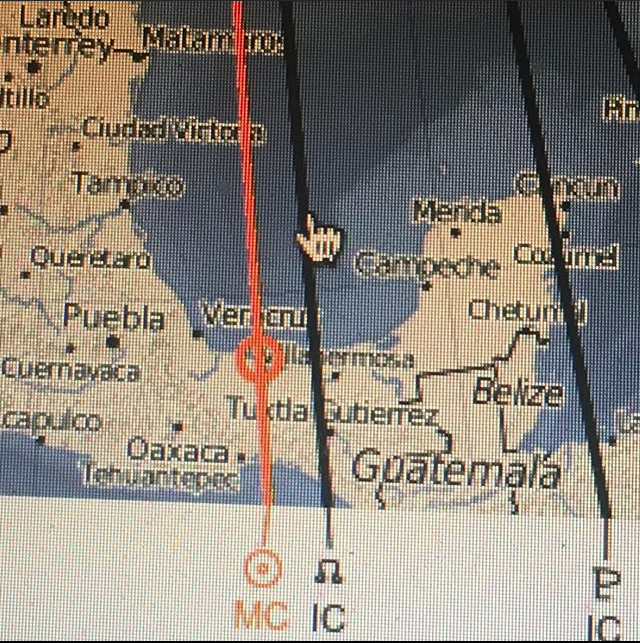Michelle De León Guerra
Office Dynamics: The Space Between Culture Shock, Personal Conflict, Work Ethic and Everyday Crisis
Abstact: There are many methodologies used in Migratory Disciplines such as Oral History, Digital Archiving, and Autoethnography. This project is an autoethnographic working document that excerpts some of Michelle De León Guerra’s reflections tying the relevance of previous work experience as an Oral History in the Liberal Arts Fellow ( Rome, Italy 2017) and their fieldwork conducted during a six month internship at Voces Mesoamericanas Acción con Pueblos Migrantes in San Cristóbal de las casas, Chiapas, México
August 2019-February 2020. Through personal reflections on work ethic, social identity, and critical engagement, De León invites an audience to question their conditional placement in this world during a time of everyday crisis.

From August 2019 to February 2020, I spent six months in the high mountains of Chiapas to complete the last co-op of my undergraduate degree at Antioch College. The bordering state was disputed between Mexico and Guatemala for centuries, yet it’s peoples, languages and customs draw from Mayan, Olmec and other Indigenous heritage in the Mesoamerican diaspora. The high mountains area near San Cristobal de las Casas are home to thousands of Zapatista communities that defend the rights of indigenous peoples to self determination, environmental law protections and conservation of indigenous cosmological customs. Southern Mexico offered so much in such a short yet compact amount of time. The mental and emotional work has been much more dense than some of the technical and cultural barriers I was expecting to confront externally. From volunteering for one of the only organizations in the nation to work closely with displaced peoples and their family members, to filtering the saturation that comes with internships in a white savior tourist destination like San Cristobal de las Casas, I can be honest and say I didn’t know what I was getting myself into when I booked my flight to Mexico City in the summer of 2019.
The following account serves as an example of an autoethnographic reflection before I started my internship, displaying the “... the potential biases or influences, so that the reader can be aware of them when reading and interpreting the data.” It is a personal account of a first generation Guatemalan-American college student flirting with the idea of the autoethnographic relays and field notes on volunteering for a nonprofit organization dedicated to migration advocacy in southern Mexico, hunting or rather hinting at the novelty of it all.

Voces Mesoamericanas is an organization that has been in San Cristobal de Las Casas for over ten years. Their mission statement, along with their programs, has expanded and developed over this time. Although I do not claim to capture the vision at Voces, or the visions of those who worked there, I do reconcile some of the questions that many of us have when doing “God's work”. At the moment, there are three departments at Voces that have distinct programs with indigenous communities in the high mountain and jungle regions of Chiapas and transnational migrants in southern Mexico including Autogestión Organizativo de Poblaciones Indígenas Migratorias (AOIM), Niñas y Niños Indígenas Migrantes (NIJUMI), and Defensa Integral para la Justicia en Migraciones (DIJM). For the past six months, I’ve been working with two lawyers in the department of defense (DIJM). They accompany cases of migrant disappearances in northern Mexico and southern United States. Defensa also offers legal support to transnational migrants, some who are still being detained in Mexican detention centers in the state of Chiapas.
When I initially talked to the lawyers who run the program called Integral Defense of Justice in Migration, we did a whatsapp phone call the week before the 2019 spring quarter at Antioch College would end. It was about 4 pm, I was living in an upstairs room in case commons. I eagerly awaited the phone call in the dim lighting of my room on the southside of campus. I could feel the warmth outside - the dusty, dingy carpet that trapped heat and anxiety through the floorboards. Though I shut my door, I left the window open and knotted my marine blue curtain to see the sunset. Just the idea of dusk gave me a breath of fresh air. I was emotional, I was nervous, I was naive, but I was honest. I wanted to come to Voces and work in their department because Central American migration had its own role in the making of my personal history. I signed myself up for a six month internship in their office, setting my working hours to five days a week, between six to eight hours a day depending on the workload. As I'll explain later in this reflection, balancing between the urgency of my professional, personal and academic duties often clashed. As dramatic as this sounds, these static moments were numbing, often leaving me to cypher and uncypher my priorities in a way that I had been avoiding for years.

Chiapas is close enough to Guatemala that I could visit my family and reflect on what the Mayan diaspora looks like. Being “technically” Mexican territory, it also took off the pressure of feeling like I didn't belong because I already knew I wasn’t Mexican from the start- many people born in the US with family heritage elsewhere look for a revelation in the motherland, a home in the constellations. For me, it has been one of the most vulnerable mental and physical spaces to exist in, at times I wish I could escape the figurative tabs of my worries and privileges- and the gritty details that leaves me indebted, like owning a passport, owing a loyalty to an ideological mindset that didn’t leave me feeling less empty as if I were to reject it. Rebuking comes with repulsion. The lukewarm concepts I once knew couldn't be doused in guilt and housed by fear anymore.